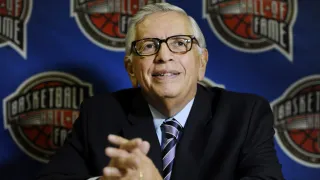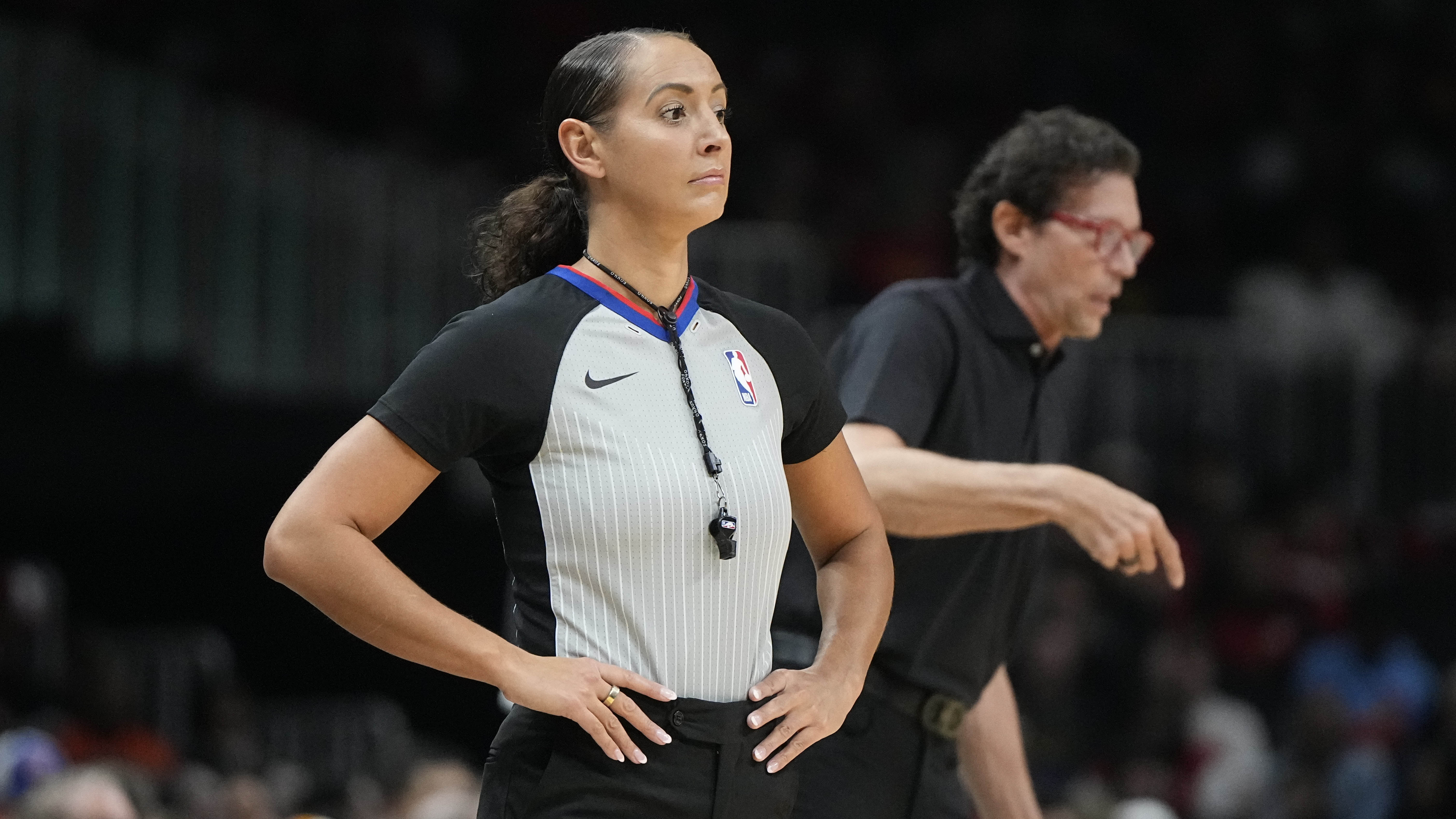
It’s difficult to recall the Bulls’ dynasty without picturing former NBA commissioner David Stern handing the Larry O’Brien championship trophy to Bulls chairman Jerry Reinsdorf.
But it only happened five times during the Bulls’ separate three-peats.
“After we won in Phoenix [in 1993], TV went to a commercial and when they came back from the commercial, he lost sight of me and handed the trophy to Michael [Jordan],” Reinsdorf said in a phone interview. “I needled him and said, ‘You just didn’t want to give it to me again?’ He said, ‘No, I didn’t know where you were.’”
This anecdote aptly summarizes the irreverent relationship that Reinsdorf had with Stern, the longtime NBA commissioner, who passed away Wednesday at age 77 after suffering a brain hemorrhage last month.
Reinsdorf led a group of investors who purchased the Bulls in 1985, shortly after Stern rose from the league’s general counsel to commissioner on Feb. 1, 1984. Under Stern, the NBA moved from a struggling league with several teams losing money to a $5 billion global industry that is likely second only to soccer in terms of worldwide popularity.
“The man was brilliant. He was a visionary. He set the standard for commissioners. We’ve lost a giant,” Reinsdorf said. “He was smart to realize it’s all about the players. He helped them become very marketable. I don’t think anyone’s ever bought a ticket to watch an owner.”
Under Stern, the NBA implemented a salary cap, a dress code, drug testing and stood at the forefront of the digital age. The G League and WNBA began.
NBA
But perhaps Stern's greatest legacy was his role in helping make the NBA a global sport with players recognized all over the world by one name, and a constant stream of international players flooding in.
“He recognized the appeal that this game would have outside of the country. Our games are televised in hundreds of countries. In China, the NBA is incredibly huge. He had a great sense of what would sell to the public,” Reinsdorf said. “It’s a sport that has global appeal but he sensed it earlier than anyone. When I got involved, I don’t think anybody dreamed of the sport becoming this big.”
Known as a ruthless negotiator with a long memory and legendary, behind-the-scenes temper, Stern presided over two lockouts in 1998 and 2011. Reinsdorf witnessed Stern in action in some of those negotiating sessions and stressed an overlooked aspect to Stern’s personality.
“He was always very prepared, had all the facts. Nobody could say anything that would surprise him. And he was tenacious. He knew he had a strong hand in labor negotiations and he played that hand,” Reinsdorf said. “But he also knew that at the end of the day, we all had to work together. He couldn’t alienate the players and union to where it was an irreparable breach. He never made it a personal battle.”
Reinsdorf said he and Stern had one “little blip” in their professional relationship that centered on a television rights dispute for Bulls games in the late 1980s. They overcame that and stayed in touch even as Stern moved into his emeritus commissioner role in 2014, staying involved in various projects that benefitted the league.
“I respected him. I think he respected me. I enjoyed his company. He had a great sense of humor,” Reinsdorf said. “We used to needle each other about our weights. A couple of years ago, I interviewed him at a charity function and they showed a picture of him with a mustache. And I said, ‘Who told you to grow that ridiculous mustache?’ It was a very irreverent relationship that I enjoyed very much.
“He was too young. He was virile. He was active. He was involved in a lot of projects. I don’t think he slowed down at all after he left the commissioner job. It has to be so difficult for his family, and my thoughts are with them.”
Attention Dish and Sling customers! You have lost your Bulls games on NBC Sports Chicago. To switch providers, visit mysportschicago.com.


